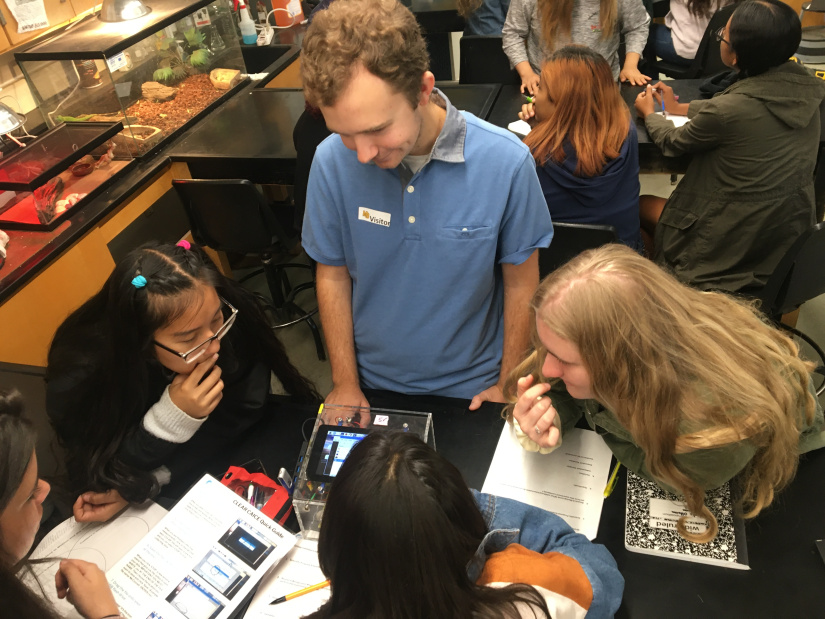Written By: Kyle Angle, PhD Candidate @ UCSD
I began my journey of studying aerosols without having any idea what they were. In my freshman year at Truman State studying organosulfates, I decided to do research because I thought it would look good on my resume. I chose to work for a couple of kind professors who happened to be studying organosulfates, which are compounds that have been detected in aerosols. At the time, aerosols themselves were not important to me, and I kept up with the project just from the excitement of doing something new.

That summer I participated in a service trip to Guatemala. I worked with a team that brought food, vitamins, eyeglasses, and free medical consultations to parts of the country where there was great need. One thing I noticed was that many of the Guatemalans would come to their consultation complaining of lung pain.
This likely came from their daily practice of cooking dinner as a family in an enclosed space without ventilation. In these circumstances, smoke would build up and over time cause them respiratory problems. Without access to any information about health, however, they had no way of knowing that their family tradition was the source of their pain. Several of the Guatemalans were also surprised that simply opening a window or door could help their situation greatly.

After returning to college, I started thinking more about the air we breathe. We cannot live without it, yet most of us take for granted that we will always have access to clean air. If there is an obvious sign of a problem, like a bad smell coming from an organic lab, we might think “Gosh, this place needs better ventilation!” But what happens next? Where do the bad smells from labs and the smoke from our cooking go?
So it turns out air is a lot more complicated than we think. In addition to its well-known components like oxygen and carbon dioxide, our atmosphere contains aerosols, which are tiny suspensions of solids and liquids in the air. Some aerosols contain organic compounds, like those that are ventilated from a lab. Others are composed of black carbon or soot from smoke. Now that I’m a graduate student at UCSD and located conveniently close to the ocean, I am studying a third kind, sea spray aerosols, which are the ones shot up into the air by the ocean waves. All of these and many other varieties of aerosols are important because they influence the climate and how much heat from the sun reaches the Earth’s surface.

For me, though, aerosols are important for another reason. When we talk about aerosols, we have to think about the air we breathe. The more we study and discuss them, the more people will start to become aware of how what they inhale impacts them. That’s why my research and education outreach are important to me. For my research, I am working with many other scientists in CAICE to study the acidity of sea spray aerosols. This is important because the acidity of these aerosols changes their impact on health, especially the lungs, and everyone who lives near the ocean breathes them in. As for outreach, I have participated in the CLEAR CAICE program, where we bring particle counters to high school students so they can design experiments that help them measure and become aware of aerosols in their everyday lives.
I hope for a world where everyone can be conscious of their environment and be informed enough to make simple changes that improve their health. And if I can contribute to that by spreading knowledge about the invisible particles floating all around us, then I can be confident that I am making a difference by working as a member of CAICE.
Any opinions, findings, and conclusions or recommendations expressed in this material are those of the author(s) and do not necessarily reflect the views of the National Science Foundation (NSF).
